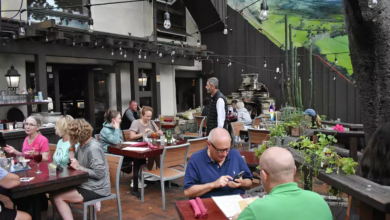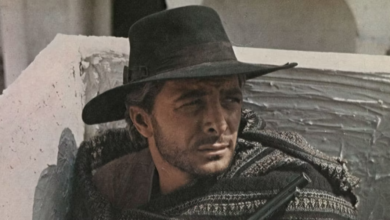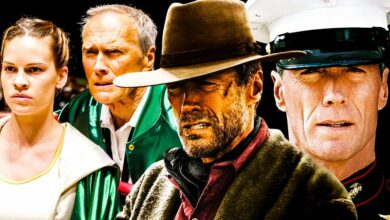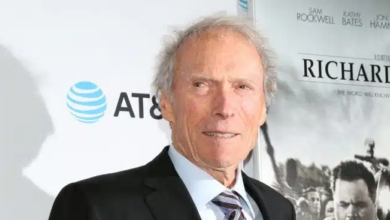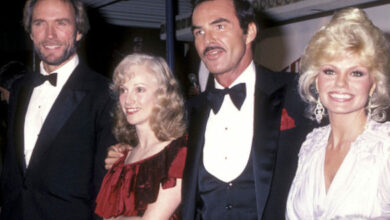Clint Eastwood’s Cry Macho reflects on his screen legacy — and subverts it — in a contemporary western
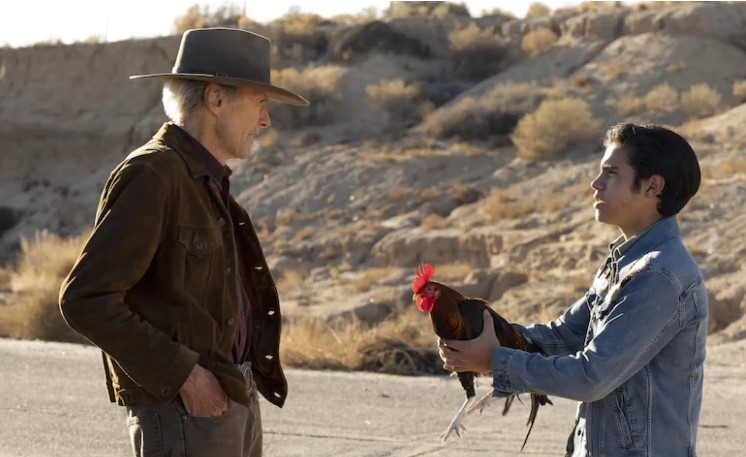
Through the bajillion films Clint Eastwood has made over the past 66 years, he’s arguably done more than any one other single person in Hollywood to prop up – and demolish – American fantasies of heroism.
On screen, he’s embodied a motley gang of taciturn male loners living by a personal code – perhaps none more iconic than his thin-lipped, cigarillo-huffing gunslinger, The Man with No Name, in the trilogy of 60s spaghetti westerns made by Sergio Leone.
Behind the camera, Eastwood has only dug deeper, obsessively interrogating notions of what makes a hero through 42 directorial features (not least The Outlaw Josey Wales, Unforgiven, American Sniper and Richard Jewell).
The search for redemption continues in Eastwood’s latest, Cry Macho – a surprisingly low-key return to his old spiritual stomping ground, the western, and a highly self-reflexive, 1979-set tale of a washed-up ranchero sent south on a semi-legal quest.
The film teases right from the kick-off, as the wry title appears in red, knock-off saloon-style lettering, serenaded by a plaintive country song about “mistakes” and “nights that are so long”.
Beginning on this brazenly rueful, elegiac note, the film introduces us to Mike Milo (Eastwood), a surly ex-cowboy who’s fallen further than most.
The backstory is dashed off in an inelegant, if effective, expository opening sequence: the camera pans over newspaper clippings chronicling Mike’s rise as a rodeo star before he was tossed off a bucking horse and broke his back – an accident that was followed by the death of his wife and child, and Mike’s steady, sodden retreat from the world.
Beyond whisky, there’s now little to distract Mike from his doldrums, until his whiny former ranch boss Howard (country singer Dwight Yoakam) calls in a favour, and sends him away from Texas, out onto the road.
Armed with a map of Mexico City, an envelope of cash, and a faded photo of Howard’s now 13-year-old son, Rafael (Eduardo Minett) – whom Mike is supposed to ferry back over the US border and away from his corrupt, “nutcase” mother Leta (Fernanda Urrejola) – Mike sets out in his pick-up truck, grumbling all the way.
When Mike tracks Rafa down, living rough on the streets of Mexico City, the pouting, hot-headed teen is dressed like his namesake Ninja Turtle with a ratty bandana wrapped around his head.
At first suspicious and combative, calling Mike a “perverted old man”, he agrees to come with the “gringo” when he learns that he was a cowboy, his eyes filled with sudden awe.
Admittedly, much of this set-up action (originally scripted in the 70s by the late Richard N. Dash, and updated by Eastwood regular Nick Schenk) feels pretty jagged.
The early scenes are marked by cheesy dialogue and overblown performances – most bizarrely, the significantly younger Leta going full vamp on Mike, after he arrives looking for Rafa, in her palatial boudoir – which feel mismatched with Eastwood, who best articulates through the subtle twitch of a cheek muscle or an unflinching gaze.
(A similar issue mars that other unexpected tear-jerker in Eastwood’s filmography, The Bridges of Madison County, with Meryl Streep’s florid Italian accent clanging against Eastwood’s soft growl.)
And yet, as the fugitive pair exit Mexico City – with Leta’s cartoonish, seedy henchmen on their tail – the odd-couple buddy movie unexpectedly blooms to life.
Rafa’s only possession, his cockfighting rooster, Macho, is also along for the ride.
“Macho means strong!” Rafa informs Mike proudly.
The old cowboy just rolls his eyes.
The trio’s return is delayed by car thieves, Federales and other pesky enemies, slowing the pace of the action to an incredibly pleasant crawl, while what starts out as a seemingly archetypal hero’s journey – a clear-cut case of goodies and baddies, a border that must be crossed and a debt repaid – grows into something more emotionally profound.
New information comes to light that makes Rafa’s abduction seem even more questionable, and the moral dilemma of what is “the right thing to do” repeatedly comes up.
Much like the crude idea of the “freedom” and “happiness” that supposedly awaits Rafa in America, any simple answers are thrown into doubt.
The only things one can truly be sure of, the film suggests, are the private pleasures that the pair discover en route: a mug of hot coffee waiting for you in the morning, being taught how to press fresh tortillas by a new lover, the delicious idleness of communing with animals, or camping out under the stars.
For those viewers for whom Eastwood has been a deity-like fixture haunting cinema for the past half-century, it’s deeply affecting to watch a gruff, heartbroken old cowboy yearn so openly for friendship, comfort and love.
Dialogue that should creak like rotten floorboards – “That macho thing is overrated, kid” – becomes sentimental in the best possible way, while Eastwood’s every shuffling half-step is laden with the weight of his fame.
At 91, Eastwood cuts a scarecrow-like figure, sharp-angled and leaner than ever, often glimpsed in silhouette.
Wearing a cowboy hat, and still throwing a mean punch, there’s a vulnerability to his gingerly paced movements that wasn’t so visible in his last majestic meta on-screen outing, 2018’s The Mule.
And yet, as Mike picks a speck of dust out of Macho’s eye, reassures an injured goat, or jokes in sign language to a deaf Mexican girl, Eastwood’s crinkly green eyes sparkle with such radiance, it’s hard to believe the image wasn’t sweetened digitally in post-production.
As Mike’s new makeshift family, mothered by the magnanimous restaurant owner Marta (Natalia Traven), gathers around him, a golden calm washes over the drama that stands in stark contrast to (and perhaps goes some way to explain) the fraught opening third.
A spell is cast as their gazes lock, and what should be embarrassingly mawkish theatrics – a widow and widower holding each other close in a slow dance while dust motes glimmer in a sunbeam – is somehow transfigured into nourishing movie magic.
As ran the tagline for Space Cowboys, Eastwood’s 2000 drama about ageing astronauts finally getting their chance in space: “‘Over the hill’ only applies where there’s gravity!”
Here again, Eastwood achieves a certain weightlessness and transcendent grace in defiance of – or perhaps thanks to – his many years of heroic service.

